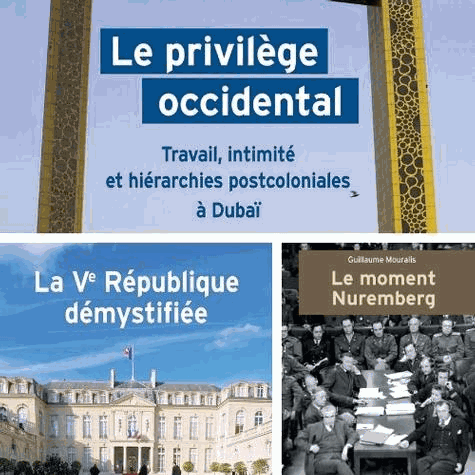Académique
Presses de Sciences Po
Des monographies présentant les résultats de recherches inédites dans les différentes disciplines des sciences humaines et sociales.

Des monographies présentant les résultats de recherches inédites dans les différentes disciplines des sciences humaines et sociales.